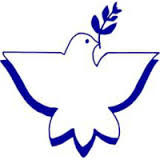I don’t know if the U.S. Army had an official groundhog and an official Groundhog Day ceremony. I kind of doubt it. Of course, they had plenty of us human ground animals that lived in holes in the ground, who wouldn’t mind going back to sleep for another six weeks. But, our job was to come out of our subterranean shelters and start advancing toward the 38th Parrallel.
Peace talks had started in Kaesong. General Ridgeway knew that in order to get an advantageous position at these peace talks, South Korean real estate that was lost below the 38th parallel had to be regained.
Just like our comrades in arms in Europe in 1945 and Jockey Hollow in 1777, the soldiers in Korea would greatly welcome some warm spring air. As welcome as that heat would be another enemy would arrive with the melting snow and ice: mud. Wheels and tracks had a nasty habit of getting buried in the intractable goop. Spinning wheels and tracks made excellent digging machines. It wasn’t unusual to find a vehicle in a self made pit as big as it. Fortunately, we had the equipment and manpower to recover these vehicles. Probably as much time was expended getting our equipment out of the mud as was in reacquiring real estate. I don’t know how impressed the Chinese and North Korean negotiators were with the dirty, muddy American equipment and soldiers arriving at their doorstep. It may have been the beginning of the end in Korea, but just the beginning. There were over two more years of peace talks plus some fierce fighting along the 38th parallel before a cease-fire was affected.
In Europe, there appeared to be a light at the end of the tunnel, as Allied Forces closed in around the crumbling Reich. Spring did hold great promise for the war in Europe.
New Jersey is often called “The Crossroads of the Revolution” and not without merit. General Washington engaged British targets of opportunity in a strategy unknown to them; we would call it guerilla warfare today. His smaller Army, using tactics Washington learned during the French and Indian War, confounded the rigidly trained British and German mercenaries. It would be a long time before there would be a light at the end of the tunnel for Washington. Spring would be welcome in Jockey Hollow. Spring of 1777 would be the beginning of the beginning.
Richard A Pender is the senior vice commander of American Legion Post 459 in North Brunswick. He writes the occasional historical column for Newspaper Media Group. He can be reached at [email protected]

